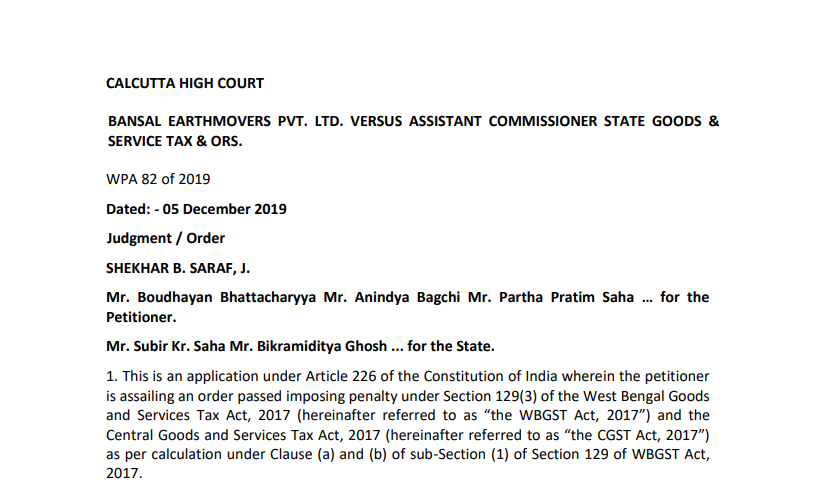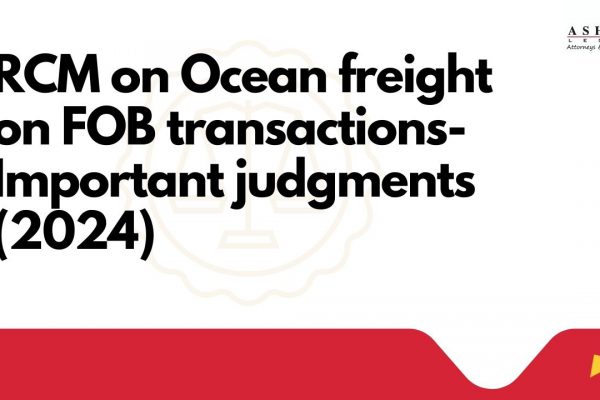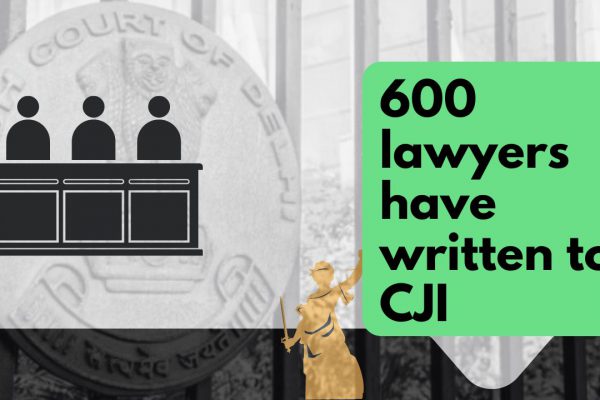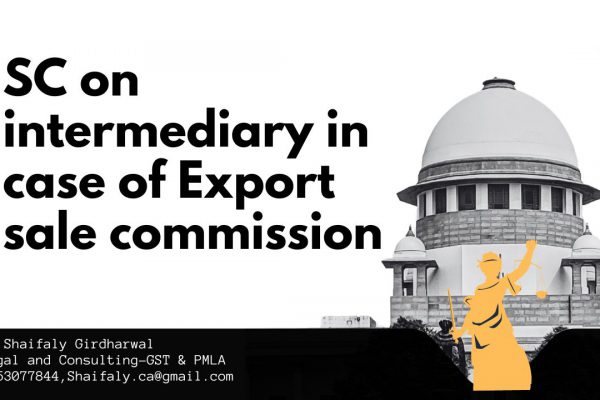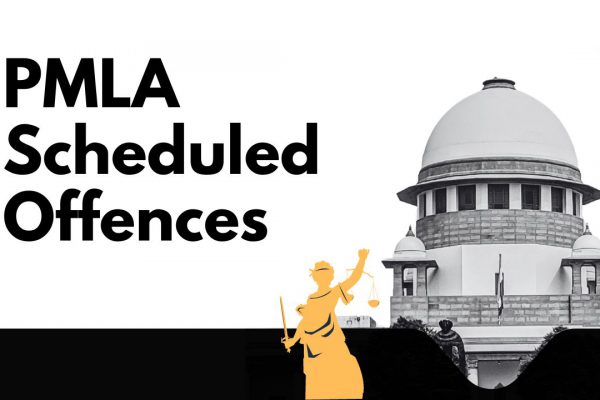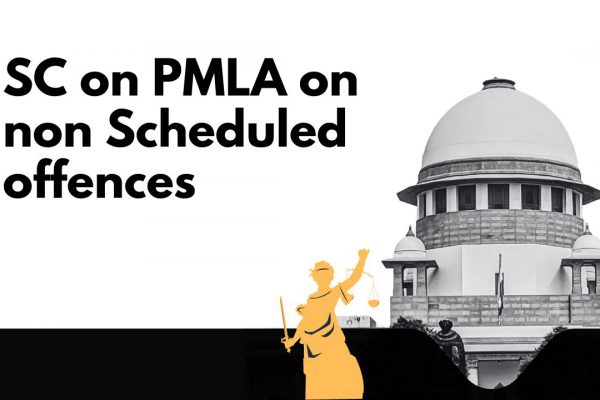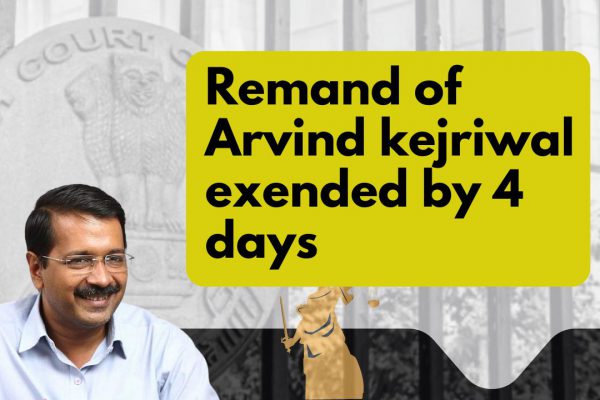Calcutta High Court in the case of Bansal Earthmovers Pvt. Ltd.
Citations: Article 226 of the Constitution of India Section 129 of WBGST Act, 2017 Dilip N. Shroff –v- Joint Commissioner of Income Tax Ferring Pharmaceuticals Private Ltd. and Another –v- Assistant Commercial Tax Officer and Others Zarghamuddin Ansari (Anwar) –v- Commercial Tax Officer & Others Assistant State Tax Officer, Squad No. VII, Ernakulam and Another –v- Indus towers Limited A.S. Motors Private Limited v. Union of India
CALCUTTA HIGH COURT BANSAL EARTHMOVERS PVT. LTD. VERSUS ASSISTANT COMMISSIONER STATE GOODS & SERVICE TAX & ORS. WPA 82 of 2019 Dated: - 05 December 2019 Judgment / Order SHEKHAR B. SARAF, J. Mr. Boudhayan Bhattacharyya Mr. Anindya Bagchi Mr. Partha Pratim Saha … for the Petitioner. Mr. Subir Kr. Saha Mr. Bikramiditya Ghosh ... for the State. 1. This is an application under Article 226 of the Constitution of India wherein the petitioner is assailing an order passed imposing penalty under Section 129(3) of the West Bengal Goods and Services Tax Act, 2017 (hereinafter referred to as “the WBGST Act, 2017”) and the Central Goods and Services Tax Act, 2017 (hereinafter referred to as “the CGST Act, 2017”) as per calculation under Clause (a) and (b) of sub-Section (1) of Section 129 of WBGST Act, 2017. 2. The above order was passed by the Assistant Commissioner of State Tax, Goods and Services Tax Department of Commercial Taxes, West Bengal, Siliguri Range, Siliguri. The relevant facts leading to the present litigation are enumerated below: a. The petitioner is a company trading in heavy machineries. In the course of its business the petitioner had bought one Soil Compactor machine from M/s. JCB India Limited, Maharashtra for the purpose of selling the same in the local market pursuant to an order placed by M/s. Akash Enterprise. b. As per the petitioner, the machinery was sold to M/s. Akash Enterprise upon raising valid sale documents as required under the CGST Act, 2017 and the corresponding State Act. The sale invoice and the delivery challan was raised and the insurance policy in favour of the buyer had also been taken out. On March, 23, 2019 the petitioner dispatched the goods to the destination at Banarhat, Jalpaiguri from the premises of the petitioner company at Salbari. The vehicle was loaded with the goods and was accompanied with the relevant sale documents and the insurance policy documents. However, as per the petitioner the waybill could not be generated as the server of the GST Portal remained continuously non-functional. c. According to the petitioner the vehicle had left the premises of the petitioner at 4.15 p.m. and the waybill was generated at 5.10 p.m. In the meantime, the vehicle had been intercepted at Phool Bari and because of the lack of the waybill the vehicle was detained by the relevant authorities. It is to be noted that the statement (Form GST MOV - 01) of the driver of the vehicle was recorded at 5.00 p.m. on March 23, 2019 and the vehicle was inspected on the same day at 5.00 p.m. (Form GST MOV – 02). Subsequently, an order of detention under Section 129(1) of the WBGST Act, 2017 read with the CGST Act, 2017 was passed on March 25, 2019 on the ground that no ewaybill was tendered for the goods that were in movement. Initially, the writ petition had been filed on April 03, 2019 challenging the detention by the relevant authorities. d. When the matter was moved on April 05, 2019 the same was adjourned as the Additional Government Pleader sought time to take instructions. Subsequently, the goods were released subject to furnishing of bank guarantee by an order of a coordinate bench of this Court dated April 16, 2019. On April 16, 2019 the respondent authorities also informed the Court that the final order had been passed in the matter. According to the petitioner, the petitioner was not aware of the date of passing of the order and had no intimation of any hearing with regard to the same. e. Subsequently, on April 08, 2019 a copy of the order dated April 03, 2019 was handed over to the petitioner demanding a sum of ₹ 4,22,890/- along with a penalty of ₹ 4,22,890/. The events that have taken place subsequent to the initial filing of the writ petition have been brought on record by the petitioner by way of a supplementary affidavit. It is to be noted that affidavit in opposition has also been used by the respondent authorities and the reply thereto given by the petitioner. 3. Counsel appearing on behalf of the petitioner, in the averments in the writ petition and the supplementary affidavit, has challenged the detention and the order passed subsequently on the following grounds: A. That the goods were not detained by the proper officer. B. The waybill had been generated prior to the date, that is, March 25, 2019, when the order for detention was passed. C. The fact that the petitioner did not possess the waybill at the time of interception was not entirely its fault but also as a result of the malfunctioning of the server of the respondent department. D. As all other documents such as the invoice, challan and insurance policy were with the goods, there was no question of any mens rea for evading tax. E. The penalty that has been imposed was done so in contravention of Clause (3) and Clause (4) of Section 129 of the WBGST Act, 2017, that is, proper notice of the imposition of penalty was not provided to the petitioner. 4. Mr. Boudhayan Bhattacharyya, counsel appearing on behalf of the petitioner, laid great stress on the principles of violation of natural justice and submitted that the petitioner had no other forum to approach as the tribunal wherein the appeal lies from the order of the concerned officer has still not been constituted. He submitted that notice of hearing of the penalty to be imposed has to be given to the petitioner and not to the driver of the vehicle who was not the employee of the petitioner. He further submitted that compliance of the principles of natural justice is inbuilt in Section 129 of the WBGST Act, 2017 and is a sine qua non for any imposition of penalty. He further submitted that it is clear from the facts that the documents such as invoice, challan and insurance policy were with the goods and therefore, there was no mens rea what so ever for evasion of tax. He relied on Dilip N. Shroff –v- Joint Commissioner of Income Tax, Mumbai and Another reported in (2007) 6 SCC 329 [Coram: S.B. Sinha and P.K. Balasubramanyan, JJ.] ; Ferring Pharmaceuticals Private Ltd. and Another –v- Assistant Commercial Tax Officer and Others reported in (2006) 147 STC 252 (Cal) [Coram: Asok Kumar Ganguly and Maharaj Sinha, JJ.] and Zarghamuddin Ansari (Anwar) –v- Commercial Tax Officer & Others reported in 38 STA 129 (Cal) (DB) [Coram: Altamas Kabir and Alock Kumar Basu, JJ.] to buttress his argument that imposition of penalty has to be based on the mens rea and culpability arising from such mens rea for the purpose of evasion of taxes that would lead to imposition of penalty. 5. Mr. Boudhayan Bhattacharyya, further submitted that it is clear from the records that the petitioner did not file any objection to the notice for imposition of penalty and was not present during the hearing. Accordingly, he submitted that the entire action of levying of penalty had been exercised without following the proper procedure as established in law. 6. He further submitted that the respondents in their affidavit have not controverted the factual aspect with regard to non-functioning of the server. He submitted that as per paragraph 10 of the affidavit in opposition the respondents have stated that the petitioner had generated two e-waybills on March 23, 2019 at 4.25 p.m. and 4.35 p.m. However, the specific allegation in the petition with regard to the server not being working for the entire day prior to 4.25 p.m. has not been controverted by the respondents. He submitted that the officer passing the order of penalty did not take into consideration the fact that the e-waybill had been generated by the petitioner at 5.10 p.m., only ten minutes after the vehicle was intercepted and inspected. 7. Counsel appearing on behalf of the State, Mr. Subir Kumar Saha submitted that the generation of the e-way bill just after the vehicle was detained clearly reveals that the petitioner had an intention to evade tax. He further submitted that the officer who had intercepted the vehicle and carried out the inception and passed the detention order was the proper officer under the Act. With regard to the issue of violation of principles of natural justice, he submitted that the driver of the vehicle had been served with the notice of imposition of penalty and such service was sufficient. He submitted that nowhere in the Act is there a requirement of service of the notice for imposition of penalty on the owner of the goods. Service on the driver of the seized vehicle carrying the goods is sufficient service. He, thereafter, relied on the Kerala High Court judgment in Assistant State Tax Officer, Squad No. VII, Ernakulam and Another –v- Indus towers Limited reported in [2018] 55 GSRT 404 (Ker) to advance the argument that the burden of proof is on the dealer to prove that the declaration/ e-waybill required to be furnished by the dealer was made before commencement of the transportation. He further submitted that it is the duty cast upon the dealer to ensure that the e-waybill is obtained prior to initiation of the transportation. 8. Mr. Bikramiditya Ghosh, counsel appearing on behalf of the State, relies on Circular bearing No.41/15/2018-GST dated April 13, 2018 to advance the argument that as per the Circular under Clause 2(g), the service of notice is required to be served upon the person-incharge of the conveyance. He further submits that the service of the FORM GST MOV-07 is only required to be effected upon the driver/person-in-charge of the vehicle. He submits that since the petitioner has not challenged the particular Circular, he cannot avoid his liability. He further submits that in certain forms, such as, FORM MOV-04, the acknowledgement portion requires the signature of either the owner or the person-incharge. He submits that in the particular FORM GST MOV-07, the acknowledgement is to be done by the driver or the person-in-charge. He, accordingly, submits that the legislature has deliberately omitted the owner from the FORM GST MOV-07. 9. I have considered the submissions and arguments advanced by counsel appearing on behalf of all the parties and perused the material on record. 10. Before initiating discussions on the legality of the actions of the respondent authorities it is necessary to pen down Section 129 of the WBGST Act, 2017. The same is provided below : “129. (1) Notwithstanding anything contained in this Act, where any person transports any goods or stores any goods while they are in transit in contravention of the provisions of this Act or the rules made thereunder, all such goods and conveyance used as a means of transport for carrying the said goods and documents relating to such goods and conveyance shall be liable to detention or seizure and after detention or seizure, shall be released,- (a) on payment of the applicable tax and penalty equal to one hundred per cent. of the tax payable on such goods and, in case of exempted goods, on payment of an amount equal to two per cent. of the value of goods or twenty five thousand rupees, whichever is less, where the owner of the goods comes forward for payment of such tax and penalty; (b) on payment of the applicable tax and penalty equal to the fifty per cent. of the value of the goods reduced by the tax amount paid thereon and, in case of exempted goods, on payment of an amount equal to five per cent. of the value of goods or twenty five thousand rupees, whichever is less, where the owner of the goods does not come forward for payment of such tax and penalty; (c) upon furnishing a security equivalent to the amount payable under clause (a) or clause (b) in such form and manner as may be prescribed: Provided that no such goods or conveyance shall be detained or seized without serving an order of detention or seizure on the person transporting the goods (2) The provisions of sub-section (6) of section 67 shall, mutatis mutandis, apply for detention and seizure of goods and conveyances. (3) The proper officer detaining or seizing goods or conveyances shall issue a notice specifying the tax and penalty payable and thereafter, pass an order for payment of tax and penalty under clause (a) or clause (b) or clause (c). (4) No tax, interest or penalty shall be determined under sub-section (3) without giving the person concerned an opportunity of being heard. (5) On payment of amount referred in sub-section 91), all proceedings in respect of the notice specified in sub-section (3) shall be deemed to be concluded. (6) Where the person transporting any goods or the owner of the goods fails to pay the amount of tax and penalty as provided in sub-section (1) within seven days of such detention or seizure, further proceedings shall be initiated in accordance with the provisions of section 130: Provided that where the detained or seized goods are perishable or hazardous in nature or any likely to depreciate in value with passage of time, the said period of seven days may be reduced by the proper officer.” 11. A bare perusal of the Section indicates that the provision starts with a non-obstante clause and provides that any goods that are in transit in contravention of any of the provisions of this Act or rules made thereunder shall be liable to detention or seizure. Subsection (3) of Section 129 states that the proper officer detaining the goods shall issue a notice specifying the tax and penalty payable and thereafter pass an order for payment of tax and penalty under Clause (a) or Clause (b) or Clause (c) of Section 129 (1). Sub-section (4) specifically states that no tax, interest or penalty shall be determined under sub-Section (3) without giving the person concerned an opportunity of being heard. 12. On an interpretation on first principles, it is clear that notice for imposition of penalty requires to be served upon the person on whom the penalty is to be imposed. Furthermore, an opportunity of hearing has to be granted. In the event, such hearing is not granted, the same would definitely amount to violation of principles of natural justice. Audi alterem partem – no person should be judged without a fair hearing – is the minimum necessity that is required to be followed as per the above provision. In my view, when the respondent authorities had in their possession documents such as invoice and challan that showed as to who was the owner of the goods, it was incumbent upon them to serve a copy of the notice upon the owner of the goods. Service simpliciter on the driver of the conveyance who was not even an employee of the owner of the goods cannot be construed to be good service under sub-sections (3) and (4) of Section 129. 13. With reference to the argument advanced by Mr. Ghosh with regard to the Circular and the FORM GST MOV-07 wherein the service of the imposition of notice is required to be made upon either the driver or the person-in-charge, I am of the view that neither the Circular nor the Form is in consonance with Section 129. 14. It is trite law that the Circular issued by the Central Board of Indirect Tax and Customs is only binding upon the authorities and not upon the assessee. I have to mention here that the Circular and the Form are not complying with the mandatory provision of giving notice to the person who is the owner of the goods and upon whom the imposition of penalty is to be made. 15. It is further noted that in the present case, the petitioner-company is having its registered office at Siliguri, Darjeeling District. Therefore, the reason for non-service of the notice by the Assistant Commissioner of State Goods and Service Tax, Siliguri upon the petitioner-company that was located within 15 kms. remains unexplained. 16. One may refer to the judgment of the Apex Court in A.S. Motors Private Limited v. Union of India, reported in (2013) 10 SCC 114, wherein the Supreme Court discussed in great detail the evolving jurisprudence with regard to the principles of natural justice. It would be apt in the circumstances to reproduce paragraph 8 of the above judgment hereinbelow:- “8. Rules of natural justice, it is by now fairly well settled, are not rigid, immutable or embodied rules that may be capable of being put in straitjacket nor have the same been so evolved as to apply universally to all kind of domestic tribunals and enquiries. What the courts in essence look for in every case where violation of the principles of natural justice is alleged is whether the affected party was given reasonable opportunity to present its case and whether the administrative authority had acted fairly, impartially and reasonably. The doctrine of audi alteram partem is thus aimed at striking at arbitrariness and want of fair play. Judicial pronouncements on the subject have, therefore, recognised that the demands of natural justice may be different in different situations depending upon not only the facts and circumstances of each case but also on the powers and composition of the tribunal and the rules and regulations under which it functions. A court examining a complaint based on violation of rules of natural justice is entitled to see whether the aggrieved party had indeed suffered any prejudice on account of such violation. To that extent there has been a shift from the earlier thought that even a technical infringement of the rules is sufficient to vitiate the action. Judicial pronouncements on the subject are legion. We may refer to only some of the decisions on the subject which should in our opinion suffice.” 17. Keeping in mind the above principles and applying the same upon the present facts, it is clear that in the present case, there has been more than a technical infringement of the statutory provision as no hearing whatsoever was granted to the petitioner. Having not been granted an opportunity of hearing, the petitioner was unable to put his case before the concerned authority. Surprisingly, the notice in FORM GST MOV-07 was served upon the driver but the order passed in FORM GST MOV-09 was served upon the driver and the petitioner-company 18. It is palpably clear from the above that the authorities did not consider it necessary to put on notice the person upon whom the penalty was being imposed. As pointed out earlier, sub-section (3) and (4) of Section 129 of the WBGST Act, 2017 specifically requires order of penalty to be passed after proper service and opportunity of hearing to be given upon the person on whom such penalty is to be imposed. Ergo, the requirement under Section 129 (3) and Section 129(4) has clearly not been complied with. 19. In the present case, the goods have already been released upon furnishing a bank guarantee as directed by an order dated April 16, 2019 of a Coordinate Bench. Furthermore, it has been submitted by the petitioner that the tax liability ascertained by the officials has also been paid. What remains is only the penalty that is required to be paid under the Act. As discussed above, the notice required to be served under Section 129 (3) has not been served properly. Accordingly, there has been a clear violation of the principles of natural justice, and therefore,I quash and set aside the impugned order dated April 03, 2019 and direct the Assistant Commissioner of State Tax, Goods and Services Tax to issue a fresh notice upon the petitioner, and thereafter, grant an opportunity of hearing and pass a reasoned order. It is made clear that notice for hearing should be given seven days in advance and the petitioner should not seek any adjournment on the date of hearing. 20. I make it clear that as the matter has been remitted to the concerned officer for a reasoned decision, I have not gone into the aspect of mens rea at this stage. The arguments with relation to the requirement of mens rea under Section 129 of the WBGST Act, 2017 and the burden of proof and/ or rebuttal of the presumption of guilt is left open to be decided by the concerned officer. 21. With these observations, W.P.A. 82 of 2019 is disposed of. 22. There will be no order as to costs. 23. Urgent photostat certified copy of this order, if applied for, be given to the parties upon compliance of all necessary formalities. Download the copy:
Get unlimited unrestricted access to thousands of insightful content at ConsultEase.
If you already have a premium membership, Sign In.
payu form placeholder
If you already have a premium membership, Sign In.
 ConsultEase Administrator
ConsultEase Administrator
Consultant
Faridabad, India
As a Consultease Administrator, I'm responsible for the smooth administration of our portal. Reach out to me in case you need help.


